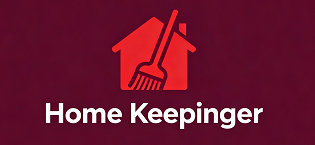In today’s fast-paced world, our living spaces often reflect the chaos of our minds. A cluttered room can add to the stress, making it hard to concentrate or unwind. But by consciously decluttering, you open the door to not only a tidier home but also a calmer, clearer state of mind. The connection between our environments and mental health is profound, and decluttering plays a significant role in easing anxiety and sharpening focus.
This article explores how tidying up your space can unlock mental well-being benefits, practical tips to start decluttering, and ways to sustain a stress-free, focused lifestyle.
The Psychology Behind Clutter and Anxiety
Our brains are wired to seek order and predictability. When we live in a cluttered environment, our minds attempt to process multiple stimuli at once—excess objects, visual noise, and chaotic layouts. This overload can exhaust cognitive resources, leading to heightened feelings of stress and anxiety.
Scientific studies indicate that clutter can elevate cortisol levels, a hormone associated with stress. The constant visual reminders of disorganization keep the brain’s alert system activated, creating a persistent underlying tension. For many people, coming home to a messy space means carrying that anxiety indoors, interfering with relaxation and mental rejuvenation.
How Decluttering Lowers Anxiety
Decluttering offers a tangible way to combat this stress cycle. By removing unnecessary items and organizing your surroundings, you create a space that promotes calm. Here’s how:
-
Reduces visual noise: A simplified environment means fewer distractions, which helps soothe the nervous system.
-
Promotes a sense of control: Taking charge of your space fosters empowerment, combating the helpless feelings anxiety often brings.
-
Encourages mindfulness: The act of sorting through possessions requires focus on the present moment, which interrupts anxious thought patterns.
-
Improves sleep: A neat bedroom supports better sleep hygiene, which directly impacts stress levels.
Many therapists suggest decluttering as part of holistic approaches to anxiety management, pointing to how behavioral changes can influence emotional well-being.
Decluttering Improves Focus and Productivity
Just as clutter inhibits relaxation, it impairs cognitive function. When your environment is overloaded, your brain struggles to prioritize information. Tasks that should take minutes drag on, and concentration fragments.
An organized space, by contrast, enhances the brain’s executive functions: planning, problem-solving, and decision-making. Being able to find what you need quickly decreases frustration and frees up mental energy for creativity and deep work.
Multiple studies on workspace productivity reveal that people in tidier environments report higher levels of focus and efficiency. Decluttering isn’t just about aesthetics; it’s about creating mental clarity and a workflow that supports your goals.
Practical Tips for Decluttering with Mindfulness
If the clutter is overwhelming, know you’re not alone. Starting small is key to sustainable progress. Here are mindful strategies to shift your space and mind simultaneously:
-
Set a timer for short sessions: Even 10-15 minutes a day can make a difference.
-
Focus on one area at a time: Choose a drawer, shelf, or corner and fully finish clearing it before moving on.
-
Ask yourself key questions: Does this item serve a purpose? Do I use or love it? Would I buy it now?
-
Sort items into categories: Keep, donate, recycle, or toss. Be honest but compassionate with yourself.
-
Create dedicated storage spots: Everything you keep should have a home to prevent clutter’s return.
-
Practice gratitude for your belongings: Appreciating what you have invites mindfully curated spaces.
By approaching decluttering as a mindful activity, it transforms from a chore into self-care.
Maintaining a Clutter-Free Mindset
Achieving decluttering goals is only the first step; maintaining an orderly space requires ongoing habits and shifts in consumption mindset. Maintaining a clutter-free lifestyle includes:
-
Regular touch-ups: Weekly quick reviews help prevent buildup.
-
Intentional shopping: Ask if new purchases truly add value or just temporary excitement.
-
Digital decluttering: Organize files and emails to reduce mental overload.
-
Create routines for tidying: Ritualistic cleaning can become meditative rather than burdensome.
-
Set limits: Employ the “one in, one out” rule to keep possessions manageable.
Mindful minimalism is less about perfection and more about creating space for what matters most, both physically and mentally.
Beyond the Home: Decluttering Life’s Mental Space
Physical decluttering often sparks broader effects on mental well-being. When your surroundings are clear, it’s a natural prompt to clear emotional baggage, toxic relationships, or overwhelming commitments.
Decluttering can inspire clarity about your priorities, encourage healthier lifestyle choices, and reduce feelings of overwhelm outside the physical environment. This holistic benefit of decluttering reflects its power as a tool for mental wellness transformation.
Final Thoughts
Reducing anxiety and improving focus are attainable with deliberate intention starting in your home. Decluttering shifts not only your environment but your mental state, releasing creative energy, reducing stress, and fostering peace.
Taking the simple step to clear your space encourages your brain to relax and perform better, highlighting the profound connection between what surrounds us and how we feel inside.
With patience, kindness, and mindful strategies, decluttering can be a deeply rewarding journey toward calmness and clarity.



